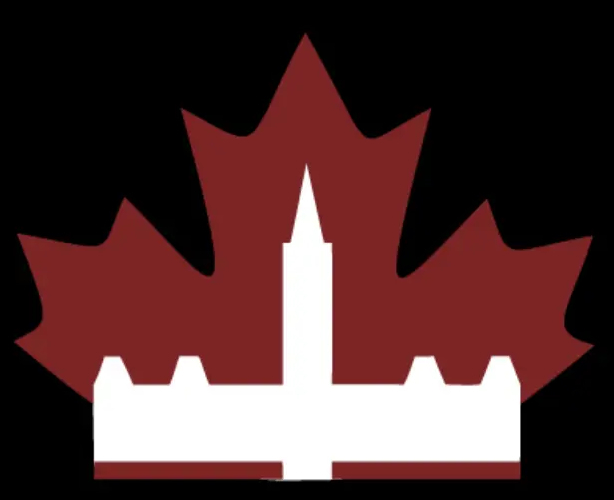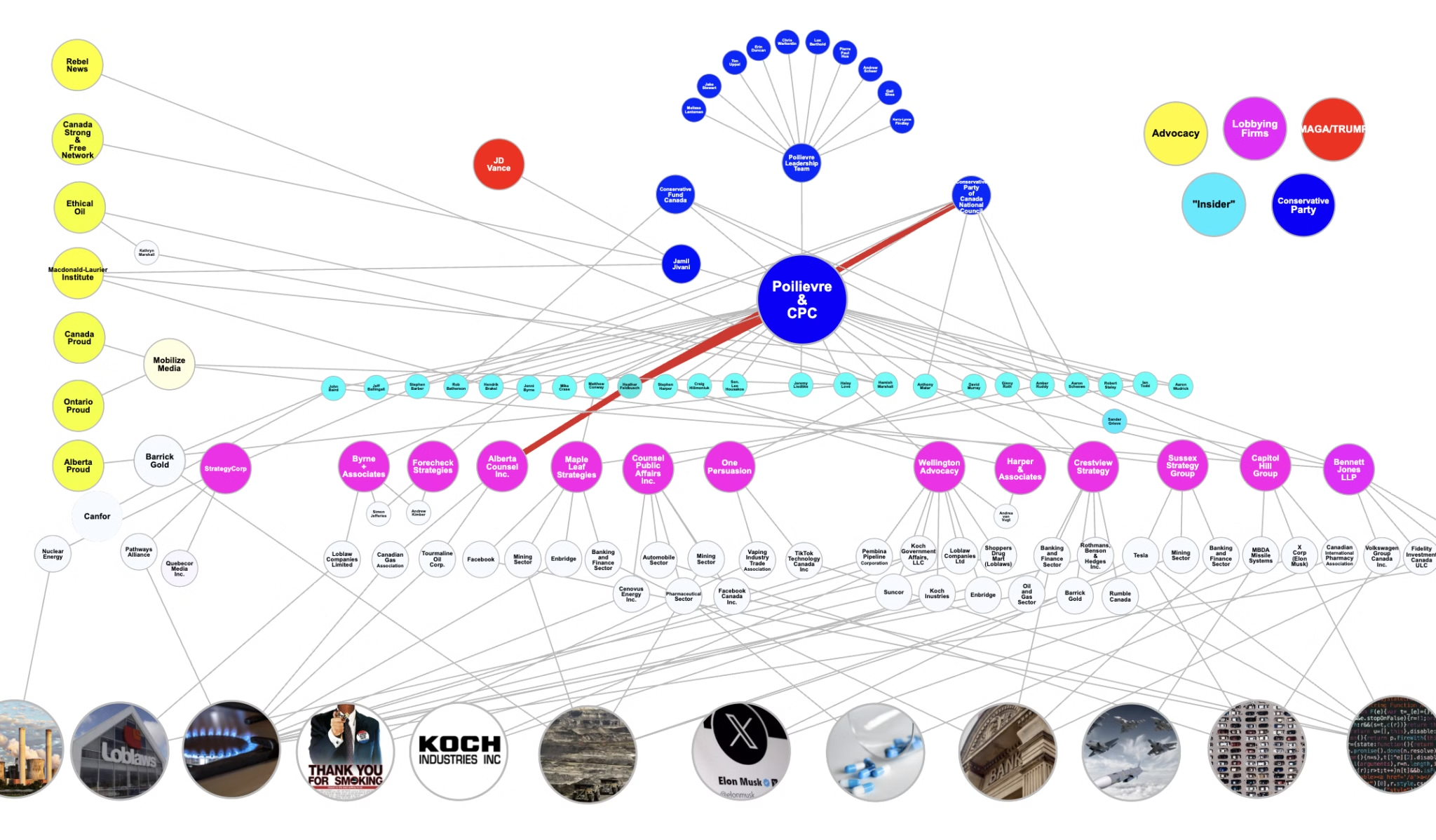Koch Industries, Elon Musk’s X Corp., Loblaws, Enbridge, Pathways Alliance, the Canadian Gas Association, Rumble Canada, Rebel News, Canada Proud, and Facebook.
These are just a handful of the corporate interests and right-wing communications platforms linked to the inner circle of Pierre Poilievre and his federal Conservatives as Canada heads into a snap federal election scheduled for April 28.
Today DeSmog is publishing an interactive map illustrating, for the first time, the web of connections between federal lobbyists, political operatives, social media strategists, industrial polluters, tech giants, and the man who could become Canada’s next leader.
Poilievre has for years portrayed himself as a champion of the country’s blue-collar workers who comes from “humble origins,” claiming during a speech last year that “when I’m prime minister, my obsession — my daily obsession — will be about what is best for the working-class people of this country.”
Yet Poilievre and his party are linked to oil and gas companies that have made record profits from gas price inflation, grocery chains accused of price-gouging, and companies owned by the world’s richest man, Musk, a key figure in the Trump administration.
Stacked with Lobbyists
Using the map, it’s clear that the Conservative Party’s National Council, the party’s highest authority on governance matters, is a hotbed for corporate lobbyists. That isn’t a coincidence, as Conservative party members several years ago voted down a resolution barring lobbyists from the council, as The Breach reported.
It’s gotta be far more than just those.
There be a reason he won’t get a security clearance
Yep, foreign “friends”
Koch is also a regular funder of Jordan Peterson, who just happens to taught P-boy and Musk to his fans.
“Shocking!”, said no one at all…
Okay. Let me preface this by saying that I have no doubt at all that all of this about Poppinfresh is absolutely true.
He’s funded, aided, and helped by the same far-right cabal that worked to get Modhi, Trump, Meili and Meloni elected, and narrowly missed the Afd in Germany and Marine LePen in France. It is a global network of far right billionaires working at creating a autocracy of the rich.
But…but…but… and again, I stress that I absolutely think this particular example is true, so don’t crucify me…
When you throw that much shit into a chart, you can eventually find links between literally everything. There’s so much data on that chart I could probably link Poppinfresh to the Easter Bunny if I wanted to.
You make a fair point about connection mapping - with enough data points, you can create tenuous links between almost anything.
However, what matters isn’t just the existence of connections but their nature, strength, and influence on policy. The concern isn’t merely that Poilievre has connections (all politicians do), but rather the specific power dynamics these connections create in our democratic system.
Under our First-Past-the-Post system, a party can form a majority government with around 39% of the vote. This means corporate and wealthy interests only need to influence a relatively small portion of the electorate to gain 100% of governing power. This vulnerability is significantly reduced in proportional representation systems where coalition-building necessitates broader consensus.
The connection between corporate lobbying and our winner-take-all electoral system is precisely why many wealthy interests resist proportional representation - it dilutes their influence by making our democracy more resilient to capture.
Rather than focusing solely on Poilievre’s connections, we should question why our electoral system makes it so profitable for special interests to influence so few decision-makers. A more proportional system would require influencing a much broader coalition.
Like infographics? See also: A Simple Guide to Electoral Systems.


